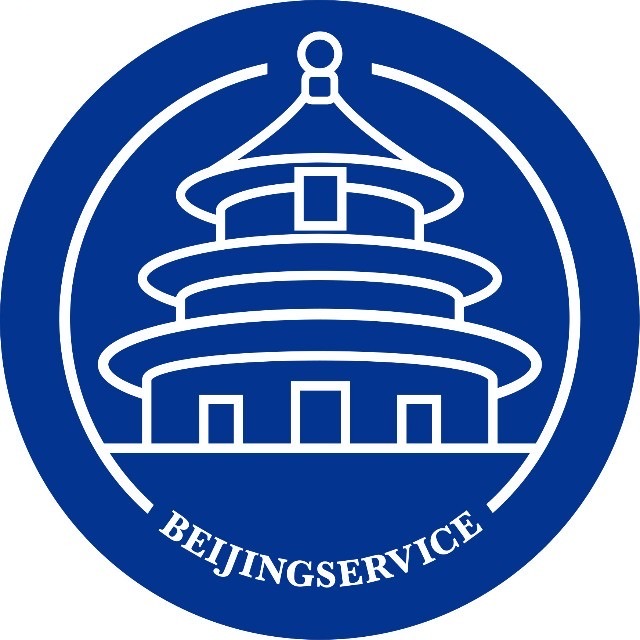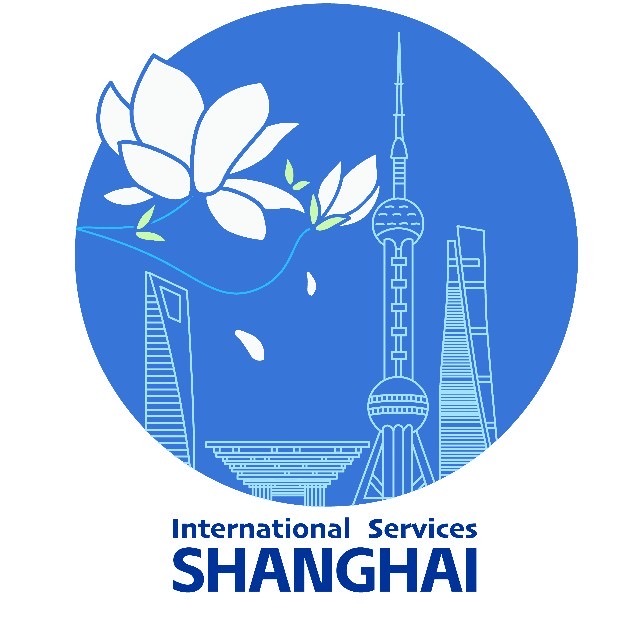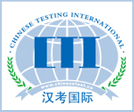Profile:
Robin, Bangladeshi, born in 1992. Currently residing in Shijiazhuang, serving as the Deputy Director of Admission Office at the International Education College of Shijiazhuang Tiedao University.
Reading Tips:
On October 10, 2010, 18-year-old Robin came to China for the first time from Bangladesh, arriving in Shijiazhuang. At that time, he didn't pay much attention to this date, but later, when he looked at his passport, this date surprised him greatly. "This day is considered 'perfect' by the Chinese, which must be a good omen for my trip to China."
As he thought, it indeed turned out to be a good omen. Not only did he complete his undergraduate and graduate studies in China, but he also fulfilled his wish to stay in Shijiazhuang after graduation, working in the admission office for international students at Shijiazhuang Tiedao University. Through this, Robin has witnessed the changes in the work of international student recruitment and international educational exchanges in Hebei over more than a decade.
Reporter: Currently, you are in charge of the recruitment of international students at Shijiazhuang Tiedao University, and you yourself studied for your bachelor's and master's degrees at Shijiazhuang Tiedao University as an international student. Can you tell us how you came to Hebei?
Robin: I wasn't recruited; I came here entirely on my own initiative. After graduating from high school in 2010, my best friend was studying at Hebei Medical University, and they invited me to come to Shijiazhuang. I had never been to China before and was eager to visit, so I applied to my parents for a one-month trip to Shijiazhuang.
At that time, I was only 18 years old, and perhaps because I was young, I failed to obtain a tourist visa twice. By the third attempt, I heard that it was easier to obtain a student visa, so I applied for a student visa instead. So, what was supposed to be just a casual trip turned into a six-month exchange program, mainly to learn Chinese.
On October 10, 2010, I arrived in China and came to Shijiazhuang the next day. As soon as I arrived here, I liked it very much. I grew up in the capital city of Dhaka, Bangladesh, and yet Shijiazhuang feels strangely familiar to me like my hometown, which was comforting.
I studied Chinese at Hebei University of Science and Technology and Hebei Medical University successively. The teachers were very responsible and strict with me even though I was only there for a short-term exchange. Also, I had good friends here, so I was very happy.
When the month was up, I still didn't want to leave. I stayed until the Spring Festival in October 2010 before returning home. After returning home, I discussed with my parents and expressed my desire to formally come to China and study in Hebei.
Reporter: I heard that your parents initially did not approve of this idea?
Robin: Yes, they wanted me to go to Australia at the time. But my decision was carefully considered. I decided to study here not just because I enjoyed spending time with my friends but because of the teachers and the learning environment here, which made me feel that studying here would not be inferior to studying in Australia. Most of my cousins studied in the UK, USA, or Australia, where teachers are relatively lenient with students' management, but I prefer the serious and responsible attitude of Chinese teachers.
I explained the situation here in detail to my parents and also did the finances with them, showing that studying in China would save us a lot of money compared to going to Australia. Finally, they agreed.
When I went back, my fiancée and I got married officially. By March, I brought my wife over with me.
Reporter: Did everything go smooth back then?
Robin: To be honest, I started looking for schools in May 2011, and at one point, I was disheartened because I couldn't find one.
Where we are from, it's different from China; we specialize in majors from middle school. I studied electrical engineering, and my wife studied business management. Because it's not a comprehensive education, it's very difficult for us to change majors in university, and our courses have to be taught entirely in English. If we followed courses taught in Chinese alongside Chinese students, it would be difficult for us to graduate successfully. However, at that time, there were very few majors taught entirely in English at universities in Hebei.
I inquired at schools in Shijiazhuang, Baoding, and Tangshan, looking for a school that offered an electrical engineering major taught entirely in English. But after inquiring everywhere, I got nothing. The schools weren't unwilling to open such programs, but due to considerations like faculty allocation and costs, they required at least 10 students to open a class for international students.
Reporter: How did things turn around?
Robin: In July of that year, an opportunity suddenly arose. A Chinese friend told me that the International Education College of Shijiazhuang Tiedao University was recruiting students. I contacted the school, and to my surprise, they took it seriously and asked me to come to the school for discussions the next day. Initially, the school said they needed at least 10 people to open an electrical engineering class, but I explained the difficulties to them, and they really wanted to open the class. So they said they would open a class with just 5 students.
This condition was already very sincere. If we didn't seize the opportunity, our plan to study in Hebei would be in jeopardy. So, I persuaded my wife to not study business management for now and to study electrical engineering with me. Then, I successfully persuaded a cousin and a high school classmate from Bangladesh to come to study in Shijiazhuang. We were still one person short, so I contacted a study abroad agency in Bangladesh to help find one.
That's how the electrical engineering class was finally able to start, and it was also the first class for international students opened by the International Education College of Shijiazhuang Tiedao University. I became the first international student at the school, and my wife was the second (laughs).
Recognition of Education for International Students in Hebei Increases Gradually
Reporter: Compared to when you first arrived, there have been significant changes in the source of international students and the majors they study. It feels completely different now.
Robin: Yes, indeed. Since we started back then, the trend of development for international student education in Hebei has been steadily rising. Whether it's the attention given by schools to international student education or the recognition of Hebei's education by foreign countries, the situation has suddenly opened up.
Take our school for example, just over a month after the electrical engineering class started, an agent from Bangladesh contacted me saying there were students interested in studying electrical engineering here, and suddenly four of them came. Just like that, our electrical engineering class expanded to nine students. This significantly boosted the confidence of the school leadership.
In 2012, the school specifically sent me and a teacher from the International Cooperation and Exchange Office to recruit students from high schools and universities in Bangladesh. That trip was quite fruitful, we recruited 16 Bangladeshi students. As a result, our school successfully opened a class for international students majoring in business administration, with a total of 18 students.
The International Education College also attracted many agents and students to inquire. In 2013, we went to Zimbabwe and Zambia in Africa to recruit students, and the local response was very good. That year, our International Education College recruited a bachelor's class in electrical engineering, a bachelor's class and a master's class in business administration, totaling about forty to fifty students.
Later on, our recruitment of international students became increasingly smooth. At our prime, we recruited over 300 international students in a year, and the total number of international students on campus once reached seven to eight hundred.
Reporter: You have been involved in the school's recruitment of international students all along. Why do you think they choose to study in Hebei?
Robin: I think the fundamental reason is the rapid development of China, which exerts a strong attraction to international students.
To be honest, before my first visit to China, I thought China might be quite backward (laughs). But as soon as I landed at Kunming Airport from Bangladesh, I was amazed. It was no less developed than Western countries. Then I came to Hebei and found that China's level of development was really high. That's when my perception changed.
Before, we had very few channels to understand China's development changes, but after 2012, China has increasingly valued external image dissemination and international cooperation and exchange, especially with the proposal of the "Belt and Road" initiative, which has given the world more opportunities to have a deeper understanding of China. Moreover, some of the enrollment policies and scholarship policies for international students are getting better and better, which greatly attracts international students to come to China.
Hebei has three major advantages in attracting international students: low costs, strong majors, and obvious geographical advantages.
Take our school for example, civil engineering-related majors have obvious characteristics and advantages, especially the close relationship between the school and China Railway Group Limited and China Railway Construction Corporation. After graduating, international students have the opportunity to work for these large Chinese enterprises, which is very attractive to them because many bridges, reservoirs, and railways in their home country are constructed by these Chinese enterprises.
Moreover, Hebei attaches great importance to the work of international students. In 2018, I was also invited to attend a reception held by the Hebei Provincial Government to celebrate the 69th anniversary of the founding of the People's Republic of China, which made me feel very honored.
Reporter: Once people understand China, understand Hebei, many people's perceptions undergo significant changes?
Robin: Exactly. The reason why my parents initially disagreed with my decision to study in China was mainly because they didn't understand China's development situation. My father has been to many countries, but he had never been to China before.
In 2015, he and my mother came to China for the first time to attend my graduation ceremony in Shijiazhuang. Since then, my father has been coming to visit every year. We visit Beijing, Shanghai, Guangzhou, Kunming, Hangzhou, and other places, driving ourselves to nearby destinations and taking planes or high-speed trains to distant ones. Every time he comes, he exclaims, "The changes are just so amazing!"
Many of the students in our college have returned to their home countries after graduation and often ask me on WeChat, "How is Shijiazhuang developing?" I tell them that the subway has been opened in Shijiazhuang. They all want to take the subway, and I joke with them, "Well, I'll just take it for you."
Reporter: I heard you are the only child in your family. Do you plan to settle your family in Shijiazhuang in the future?
Robin: Yes. My wife is currently teaching Bengali at Hebei International Studies University, and we both have stable jobs in Shijiazhuang. Now, our baby is about to turn two. We live comfortably here and really like it.
When I first arrived in Shijiazhuang, I didn't know the way and got lost several times. But now I dare say I'm a "local expert." Not only am I familiar with the urban area of Shijiazhuang, but I also often go to places like Pingshan, Jingxing, and Gaocheng to play. What surprises me is that the roads in the counties and villages around Shijiazhuang are all built exceptionally well.
Our school is close to Zhengding, and in recent years, Zhengding has changed tremendously. I often drive to Zhengding, and I especially love the South Gate and the light show. It's really awesome!
If we were to work in Beijing or Shanghai, our salary would be higher, but Shijiazhuang is the city where we have studied and worked for more than ten years since coming to China. We have deep feelings for this place and hope to continue staying in Shijiazhuang, witnessing its development changes, and making more contributions to international education in Shijiazhuang and Hebei through our work.
Events
More+-

Chengdu Symphony Orchestra2025-2026 Season Concert—Music Talk Series 2“Chinese Spring Festival Melodies”
-

Exhibition of Zhao Yunyu’s Calligraphy and Painting from the Chengdu Museum Collection
-

The 55th Chengdu InternationalPanda Lantern Festival
-

The 29th China (Sichuan) New Year Shopping Festival
-

2026 BJ Online New Year Shopping Festival Unfolds











 京公网安备
京公网安备